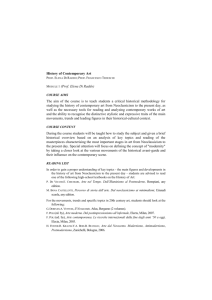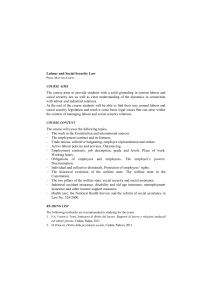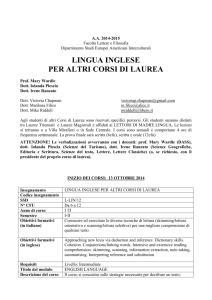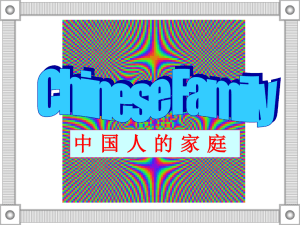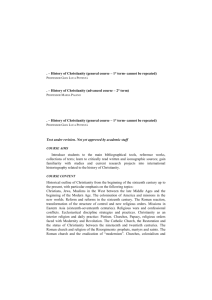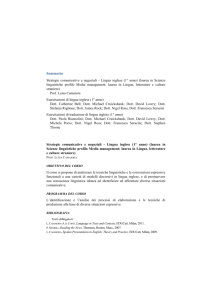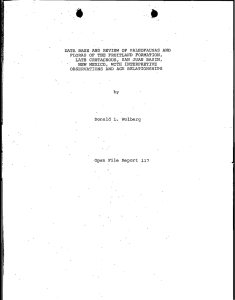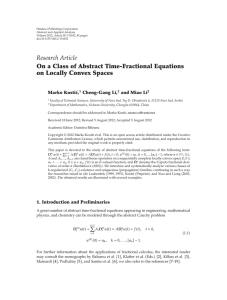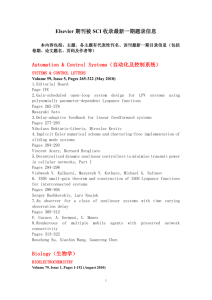Sociology of the Family and Childhood
advertisement
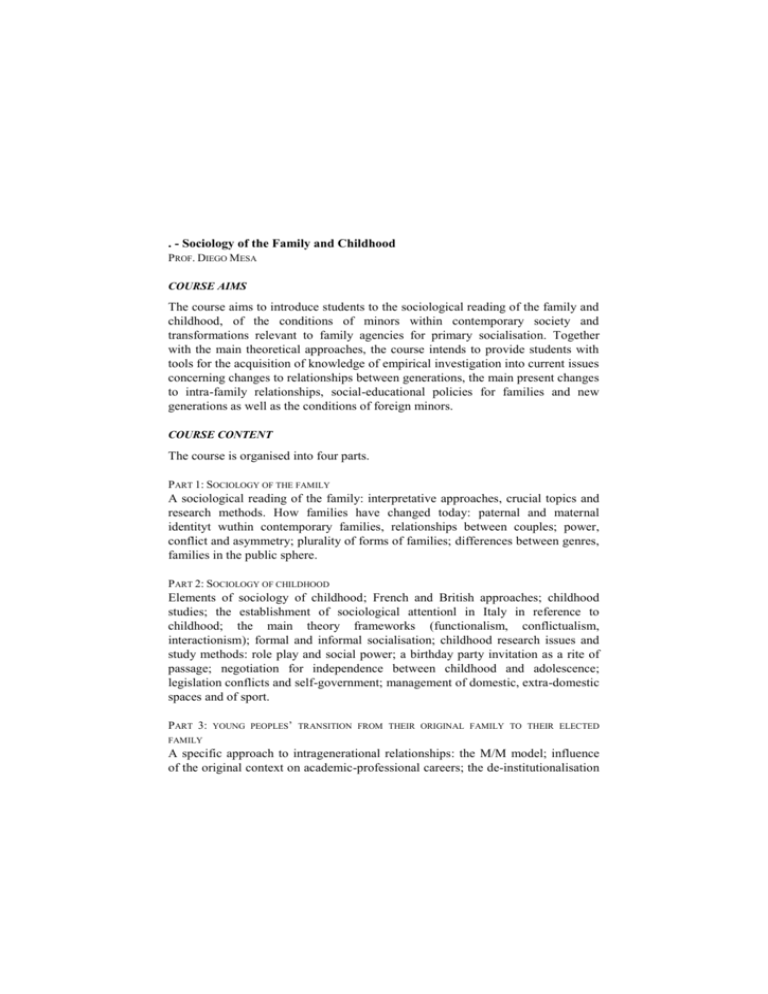
. - Sociology of the Family and Childhood PROF. DIEGO MESA COURSE AIMS The course aims to introduce students to the sociological reading of the family and childhood, of the conditions of minors within contemporary society and transformations relevant to family agencies for primary socialisation. Together with the main theoretical approaches, the course intends to provide students with tools for the acquisition of knowledge of empirical investigation into current issues concerning changes to relationships between generations, the main present changes to intra-family relationships, social-educational policies for families and new generations as well as the conditions of foreign minors. COURSE CONTENT The course is organised into four parts. PART 1: SOCIOLOGY OF THE FAMILY A sociological reading of the family: interpretative approaches, crucial topics and research methods. How families have changed today: paternal and maternal identityt wuthin contemporary families, relationships between couples; power, conflict and asymmetry; plurality of forms of families; differences between genres, families in the public sphere. PART 2: SOCIOLOGY OF CHILDHOOD Elements of sociology of childhood; French and British approaches; childhood studies; the establishment of sociological attentionl in Italy in reference to childhood; the main theory frameworks (functionalism, conflictualism, interactionism); formal and informal socialisation; childhood research issues and study methods: role play and social power; a birthday party invitation as a rite of passage; negotiation for independence between childhood and adolescence; legislation conflicts and self-government; management of domestic, extra-domestic spaces and of sport. PART 3: YOUNG PEOPLES’ TRANSITION FROM THEIR ORIGINAL FAMILY TO THEIR ELECTED FAMILY A specific approach to intragenerational relationships: the M/M model; influence of the original context on academic-professional careers; the de-institutionalisation of transition phases to adult life; the formation of a new family as a life marker, family relations, consideration styles and fundamental concerns. PART 4: IN-DEPTH STUDY OF ONE OF THE FOLLOWING TOPICS (STUDENTS’ CHOICE) - The well-being of minors in various European countries - The participation of minors in the family, school and the local community - Childhood and adolescence rights in Italy and their implementation - The social inclusion of families and foreign minors Additional indications will be provided during the course and posted on the Blackboard platform. READING LIST Students should bring the following compulsory reading to the examination: For Parts 1 and 2 P. DI NICOLA, Famiglia: sostantivo plurale. Amarsi, crescere e vivere nelle famiglie del terzo millennio, FrancoAngeli, Milano, 2008. V. BELOTTI – S. LA MENDOLA (EDITED BY), Il futuro nel presente: per una sociologia delle bambine e dei bambini, Guerini, Milano, 2010, the Introductory Section only (pages 9-51), Part One (pages 55-88) and the essay: Giochi di bambini. Riproduzione interpretativa e culture dei pari by W.A. Corsaro (pages 91-106). For Part 3 D. MESA, Giovani, cultura e società, Franco Angeli, Milano, (soon to be published). (The parts to be studied will be indicated on the Blackboard platform) For Part 4 (Choose one of the following) V. BELOTTI - E. MORETTI (EDITED BY), L’Italia minore, the Introductory Section only (pages I-XV) and Chapters 1,2 and3 (pages 1-110), Quaderno 51/2011. The book can be downloaded at http://www.minori.it/archivio_quaderni V. BELOTTI (EDITED BY), Costruire senso, negoziare spazi, Ragazzi e Ragazze nella vita quotidiana, the Introduction only (pages I-XVIII), Chapter 2 (pages 23-34), Chapters 9 and 10 (pages 123172) and any two chapters from Chapters 3,4,5,6,7 and 8. Quaderno 50/2011. The book can be downloaded at http://www.minori.it/archivio_quaderni Save The Children, 5° Rapporto di aggiornamento sul monitoraggio della Convenzione sui diritti dell’infanzia e dell’adolescenza in Italia 2011-2012, 2011. The book can be downloaded at http://images.savethechildren.it/IT/f/img_pubblicazioni/img187_b.pdf Save The Children, I minori stranieri in Italia, 2° Rapporto annuale, 2011. The book can be downloaded at http://images.savethechildren.it/IT/f/img_pubblicazioni/img133_b.pdf TEACHING METHOD The course consists of teaching units and lectures, accompanied by the reading abd viewing of film footage from various sources. All material will be available online at the Blackboard platform (http://Blackboard.unicatt.it). During the lectures further reading references may be made to allow students to carry out more detailed study of topics discussed during lectures and to develop a personalised study programme based on personal interests. These indications will also be included on Blackboard. ASSESSMENT METHOD The examination consists of a written test on Points 1-2, an oral test based on Points 3-4 and a brief dissertation to be submitted on completion of the course on one of the essays not mentioned as compulsory reading from V. BELOTTI – S. LA MENDOLA (edited by), Il futuro nel presente: per una sociologia delle bambine e dei bambini, Guerini, Milano, 2010. Precise methodological indications regarding the dissertation will be provided during lectures and on Blackboard Full-time students will have the opportunity of sitting a written test at the end of the first term. Similarly, full-time students have the option of replacing the dissertation with an illustration of their chosen topic, thus in turn will lead to a reduction of the reading in Point 4, which will be arranged with the tutor. During the examination students should utilise precise sociological language and make clear references to concepts explored during the course as well as demonstrate the ability to support them with examples from empirical research or personal considerations. NOTES Further information can be found on the lecturer's webpage at http://docenti.unicatt.it/web/searchByName.do?language=ENG or on the Faculty notice board.
